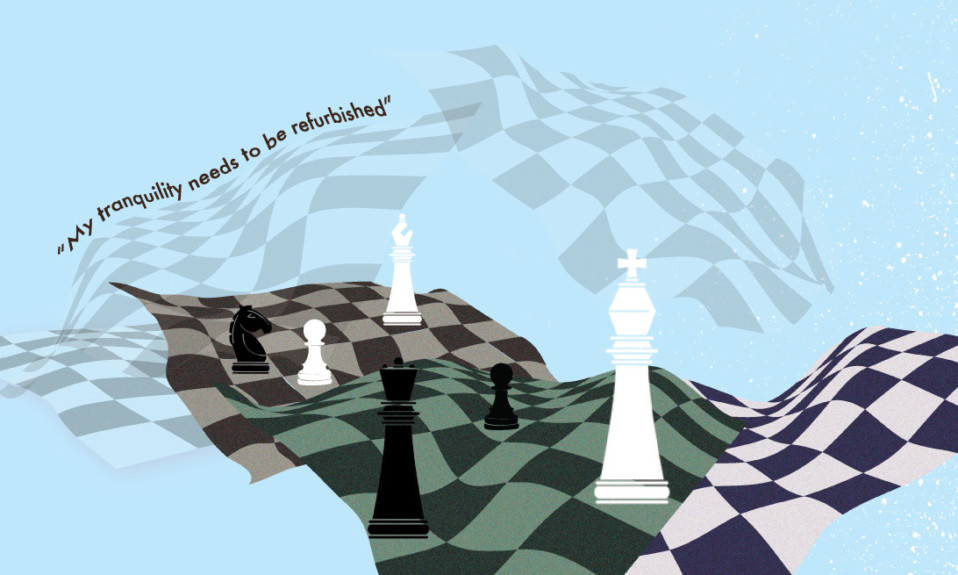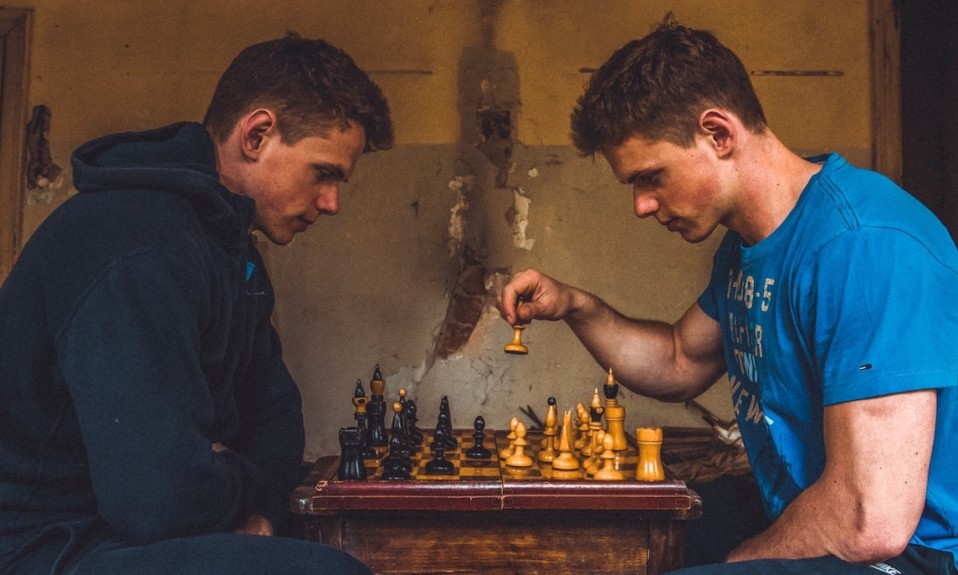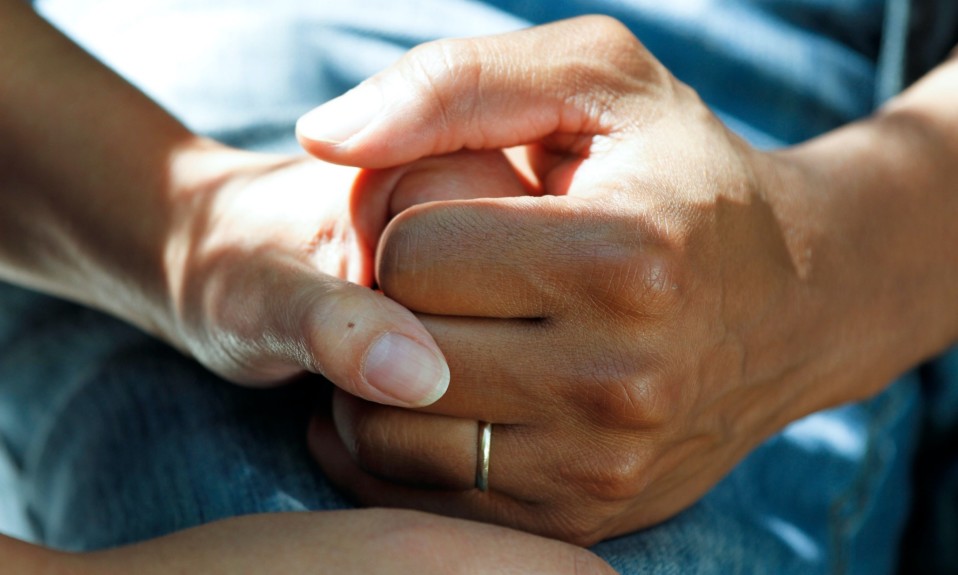The heady board game can be a powerful way to checkmate your adverse responses to stress
By Darya Daneshmand
In the Emmy-winning 2020 Netflix miniseries The Queen’s Gambit, Anya Taylor-Joy plays an exceptional young woman who medicates herself with chess throughout an inspiring yet harrowing journey. While the main plot focuses on protagonist Beth Harmon’s rise from prodigy to champion, a critical character element is the role that childhood trauma and substance use play in Harmon’s story.
Audiences were taken by the series when it premiered, as it presents the world of chess in a framework that parallels lived experience. Harmon’s dependence on alcohol and benzodiazepines—the latter of which were used to sedate her at the orphanage where she grew up—evolves as she ages, as does the way in which substance use affects her career. We learn quickly that Harmon thinks she needs to cloud her mind to win, and see her wash down pills with booze before rushing to face an opponent in the first few minutes of the series. Later on, her adoptive mother, Alma, says, “My tranquility needs to be refurbished”—an eloquent if euphemistic reference to the green pills she has come to rely on—unaware that her daughter’s does too.
The storytelling style of The Queen’s Gambit gives the show its edge by revealing a compelling truth: Chess is an inherently emotional game. Being in check will trigger your nervous system’s fight-or-flight response—puzzling out what to move to make while a clock is ticking is sure to raise your heart rate, and a poor endgame may very well injure your pride and check your ego. Misplacing a piece only to realize it will cost you the game can induce rage, and it requires emotional fortitude to sit down and analyze the game, channeling this intensity into a motivating force.
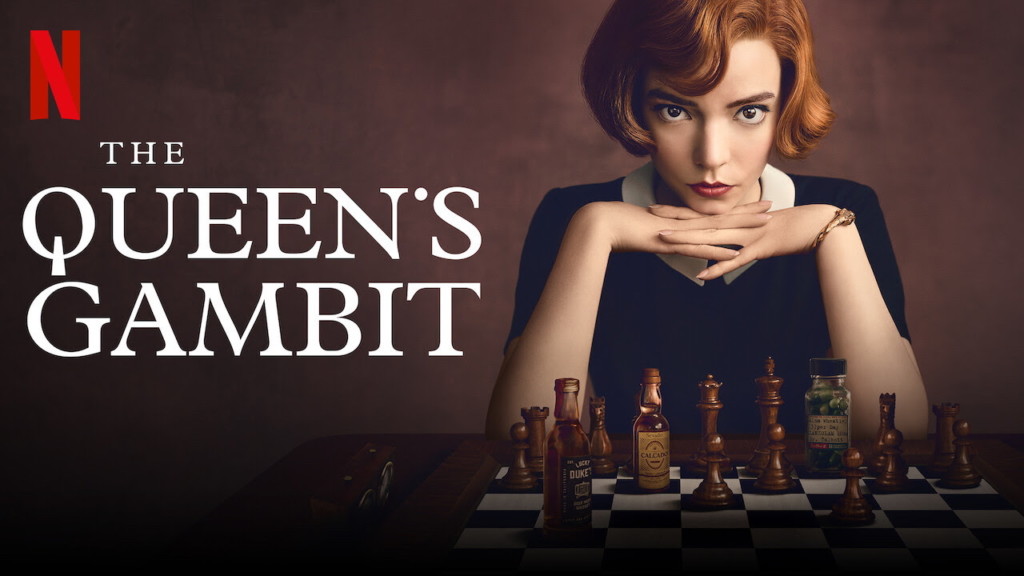
I would have liked to have seen a better depiction of how chess helped Harmon overcome her personal problems while succeeding in the game’s male-dominated world, though there’s only so much you can pack into seven episodes. The show has become a phenomenon in the year since it first aired, sparking a surge in the popularity of chess. But what audiences may not know is that chess can help anyone overcome personal issues—including addiction.
Chess in Recovery
Many perceive chess as an intellectual pursuit fit for only a certain subset of the population, rather than a learned skill that anyone can acquire with ample time and dedication. You don’t need to have “the right brain” for chess. In fact, it is chess that changes your brain.
I arrived at the conclusion that, you know, this is a pretty great way to teach people critical problem-solving skills—how to harness logic and reasoning to work out complex problems.”
—Hugh Patterson, musician, author and chess master
As a young musician, Hugh Patterson developed an addiction to heroin. In confronting his substance issue, he learned how a love for chess could serve as a tool in recovery, and began coaching at-risk youth and people with substance use disorders (SUDs). He says chess saved his life.
“I arrived at the conclusion that, you know, this is a pretty great way to teach people critical problem-solving skills—how to harness logic and reasoning to work out complex problems,” says Patterson, now an author and chess master.
The game gave Patterson something to focus on while detoxing, and it took on a new role in his life when he saw its restorative power in action. Having something to occupy your time is vital to recovery, he notes, and can ease the process of dealing with isolation and intrusive thoughts. Says Patterson, “It’s like a tether to reality.”
Studies show that this acquired ability to cope with stress and failure is carried far beyond the board’s 64 squares. Those who play chess are likely to discover how much they learn about an opponent through their choices on the board, and these insights serve as valuable tools in therapeutic settings.
In “Chess Therapy,” psychologist Jose A. Fadul writes that a series of chess matches provides insight into a person’s mental clarity and risk-taking behavior. “[They] aim at our well-being in the fullest sense; their goal is nothing less than our complete personal victory or development in defeats, the creative unfolding of the potentialities that are contained in the analysis of the games that we played, whether we won, lost or drew.”
According to proponents of the approach, chess therapists can identify sources of negative emotion for patients and work toward solutions, all while developing a mutual rapport. Research on the benefits of chess to the management of mental disorders has yielded many positive results.
- Training students with ADHD in chess revealed improvement in concentration tasks and listening language scores
- Chess can address panic disorder, which 4.7% of American adults experience at some point in their lives.
- Those with anger management can learn through the game to rechannel their emotions
- Chess can provide a helpful outlet when navigating episodes of bipolar disorder
Experts say this form of expressive therapy can be viewed in alignment with Gestalt psychology, and players stand to gain a number of skills, including:
- Improved focus and attention
- Planning
- Using critical thinking to weigh options
- Visualization and memory
- Overcoming impulsivity
- Thinking abstractly
Some inmates at Cook County Jail in Chicago have experienced these effects firsthand, participating in international chess competitions against opponents as far off as Armenia, Spain and Russia to learn life lessons and improve decision-making. The program, launched in 2012 when 12th World Champion Anatoly Karpov visited the facility, is run through the organization Chess for Freedom. Its website notes that the game can “can serve for decreasing such common symptoms like depression, stress, and anxiety. … Chess inspires self-motivation, develops the capacity to foresee consequences and demonstrates the success is a reward of hard work.” The inaugural Intercontinental Online Chess Championship for Prisoners, involving dozens of prisons worldwide, takes place this week.
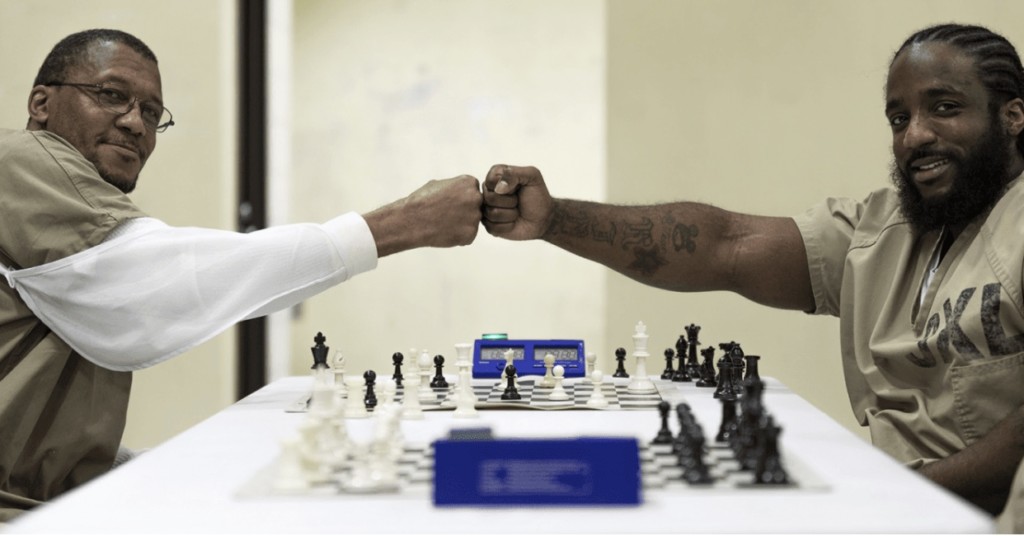
Hugh Patterson too has watched his impressive young students in juvenile correctional facilities blossom as they engage more deeply with the game, and when fellow members of Narcotics Anonymous expressed their interest, he began teaching them before meetings. Soon thereafter, Patterson started working with hospitals and institutions in Marin County, Calif., and in meetings at recovery centers in the area. He says he receives remarkable feedback from people whose lives have been changed for the better by chess. (Read our Q&A with Patterson for more on his story and teaching experience.)
We know that incarceration and addiction are closely linked, with an estimated 65% of the U.S. prison population having an active SUD. Former boxer John Healy, having personal experience with both, found chess a vital escape and tool (one he excelled at) in his battle with alcoholism. At a low point in that battle, Healy pawned his silver boxing trophies for a drink. (Fun fact: Manny Pacquiao has been playing chess longer than he’s boxed, and is a prime example of mind-body connections and spatial awareness both on the board and in the ring.) Healy touches on his introduction to chess as an inmate in his autobiography The Grass Arena: “I was like a person who finds God, only this God was a warrior made out of wood who derives his power from man.”
Not All Chess Styles Are Conducive to Recovery
It’s essential to note that while standard chess facilitates the development of valuable skills such as planning and memory, speedier versions of the game can activate neural pathways involved in reward systems that can negatively affect at-risk individuals. These quicker games, particularly “bullet” and “blitz” chess, can trigger compulsive tendencies, releasing dopamine in central regions of the neural pathway such as the nucleus Accumbens. For those using chess as a component in therapy, the traditional longer matches are those that provide the benefit.
Hobbies serve a vital role in personal growth and neurological development, and are a powerful tool in combating psychological roadblocks. As one of the oldest and most rewarding of games, chess—while it might seem an unorthodox way to address substance use—has shown itself to be a potentially powerful therapy in helping people overcome hardship, rechannel their thinking and rediscover clarity and purpose.
Illustration: Darya Daneshmand; bottom photo: Cook County Sheriff’s Office


